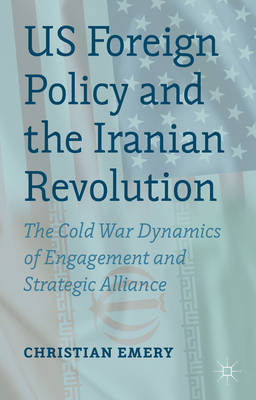In February 1979, a revolution led by a seventy-six year old cleric espousing a relatively obscure interpretation of Shia Islam succeeded in dislodging one of Washington's most powerful allies in the Middle East. Although low-level analysts had long warned of a crisis looming in Iran, Carter's senior foreign policy advisors, distracted by more pressing foreign policy initiatives, had resisted any serious rethinking of US strategy. US policymakers now had no choice but to adjust to a completely new reality in Iran. This book examines the nature of that adjustment. It demonstrates that, contrary to the claims of Iran's leaders, US diplomats tried in good faith to build bridges with the new regime. Good faith was not enough, however, and this study explains why many assumptions guiding US policy were inappropriate for dealing with the new reality in Iran. It examines how US policy objectives in Iran were refashioned in light of three major and converging crises: the Iran hostage crisis, the Soviet intervention in Afghanistan, and the onset of the Iran-Iraq dynamic.
By re-examining the Carter administration's record in post-revolutionary Iran, Emery provides a fresh perspective on the origins of one of the most bitter and enduring confrontations in international relations.
- ISBN10 1137329874
- ISBN13 9781137329875
- Publish Date 15 October 2013 (first published 1 January 2013)
- Publish Status Active
- Publish Country GB
- Imprint Palgrave Macmillan
- Format eBook
- Pages 284
- Language English
